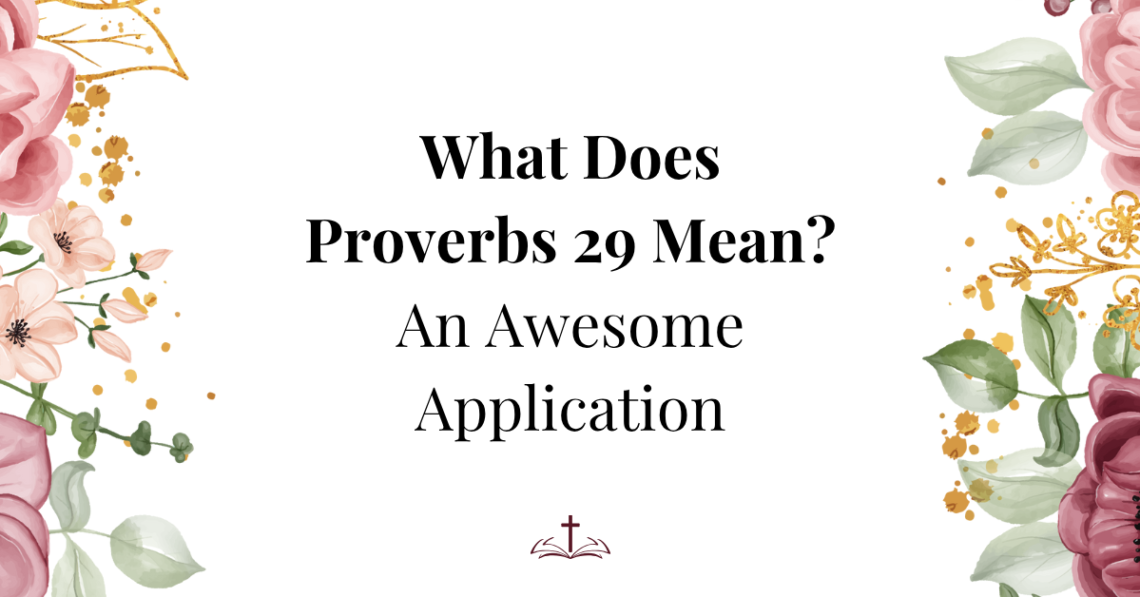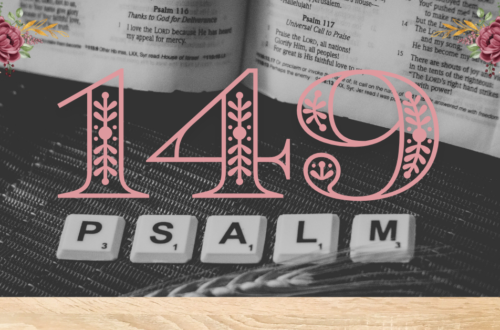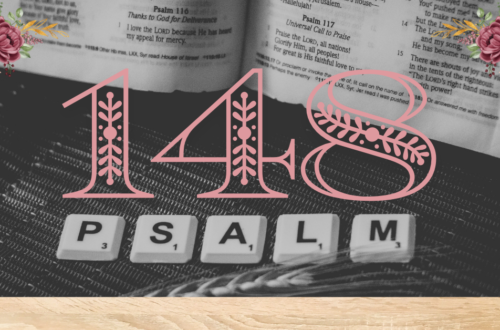Proverbs 29 is a chapter that focuses on the themes of wisdom, leadership, discipline, and the consequences of our actions. It provides clear guidance on how to live in accordance with God’s will, especially in our interactions with others and in our roles as leaders. This chapter reminds us that godly wisdom leads to peace and prosperity, while foolishness and stubbornness lead to ruin.
1. Understanding Proverbs 29
The Importance of Wisdom in Leadership (Verses 1–2)
The chapter begins with a warning to those who persist in their foolishness, particularly those in positions of leadership. It contrasts the fate of the righteous and the wicked in leadership roles:
“The righteous detest the dishonest; the wicked detest the upright.” (Proverbs 29:27, NIV)
- Righteous Leadership: Leaders who are righteous and just bring peace and prosperity to their communities. They understand the importance of integrity and wisdom in guiding others.
- The Contrast of the Wicked: Leaders who are wicked or dishonest cause division, confusion, and hardship for those they lead. Their actions often result in chaos and unrest.
Discipline and the Consequences of Foolishness (Verses 3–9)
Solomon discusses the role of discipline in a person’s life and the disastrous consequences of living foolishly:
“The rod of correction imparts wisdom, but the child left undisciplined disgraces its mother.” (Proverbs 29:15, NIV)
- Discipline is Essential: Both physical and spiritual discipline are necessary to guide individuals toward wisdom and righteousness. Proper discipline helps to shape character and leads to a life of peace.
- Foolishness Leads to Ruin: Those who reject discipline and live recklessly bring shame and destruction upon themselves and their families.
The Power of Words and the Need for Self-Control (Verses 10–14)
Solomon speaks of the influence of words and how they reflect the condition of the heart. He urges people to exercise self-control in their speech and actions:
“The fool gives full vent to his anger, but the wise bring calm in the end.” (Proverbs 29:11, NIV)
- Words Reflect the Heart: Our words have the power to build up or tear down. Those who are wise use their speech to bring peace and understanding, while the foolish use words to stir up anger and conflict.
- The Need for Self-Control: Self-control in both speech and action is essential for maintaining peace and building strong, trusting relationships.
The Importance of Vision and Guidance (Verses 15–18)
Proverbs 29 emphasizes the importance of having a clear vision and godly guidance in life:
“Where there is no vision, the people perish.” (Proverbs 29:18, KJV)
- Vision Leads to Life: A life without direction or purpose leads to chaos and destruction. A clear, God-given vision helps people stay focused and live purposefully.
- The Role of Guidance: Wise leadership, especially in families and communities, is crucial for providing direction and guidance. Without such leadership, people may lose their way.
The Dangers of Anger and Pride (Verses 19–23)
Solomon warns about the dangers of uncontrolled anger and pride, which can lead to personal and relational destruction:
“Pride brings a person low, but the lowly in spirit gain honor.” (Proverbs 29:23, NIV)
- Anger Destroys Relationships: Uncontrolled anger often leads to more harm than good. It can destroy relationships, create division, and prevent reconciliation.
- Pride Leads to Fall: Pride can cloud our judgment, making it harder for us to see the truth and humble ourselves before God and others. Humility, on the other hand, brings honor and favor.
The Importance of Justice and Fairness (Verses 24–27)
The final verses of Proverbs 29 stress the importance of justice, fairness, and the consequences of living outside of God’s standards:
“The righteous care about justice for the poor, but the wicked have no such concern.” (Proverbs 29:7, NIV)
- Caring for the Poor and Oppressed: Justice, particularly for the poor and oppressed, is central to God’s heart. Righteous individuals seek to ensure fairness and justice in society.
- The Consequences of Injustice: Those who ignore justice and take advantage of others will face judgment. God sees all and will bring justice to those who oppress the weak and helpless.
2. Applying Proverbs 29 to Everyday Life
Live with Wisdom in Leadership
Proverbs 29 calls us to lead with wisdom, whether in our homes, workplaces, or communities. As leaders, we are responsible for setting the tone and direction for others, guiding them with integrity and justice.
Practical Steps:
- Lead by Example: Whether you’re a parent, teacher, or leader in your community, model the behavior you wish to see in others. Lead with wisdom, integrity, and compassion.
- Exercise Fairness: Treat others with justice and fairness. Make decisions that reflect God’s principles of equity and compassion, especially for the marginalized.
Discipline Yourself and Others
Discipline is an essential part of growing in wisdom and living a righteous life. Proverbs 29 teaches us that both self-discipline and the discipline of others are necessary for a flourishing life.
Practical Steps:
- Discipline Your Heart: Set aside time for personal reflection and self-discipline in areas like speech, anger, and actions. Ask God for guidance in areas where you struggle.
- Train and Guide Others: Whether you’re a parent, teacher, or mentor, invest in the lives of others by providing correction and guidance that will lead them toward wisdom and growth.
Guard Your Words and Actions
The power of words is a central theme in Proverbs 29. Our speech has the ability to influence and shape the lives of those around us.
Practical Steps:
- Practice Self-Control: Be mindful of your words, especially in moments of anger or frustration. Choose your words carefully, aiming to build others up rather than tear them down.
- Bring Peace in Conflict: When conflict arises, strive to respond with wisdom and calm. Seek reconciliation and understanding rather than allowing anger to control the situation.
Develop a Godly Vision for Your Life
Proverbs 29 stresses the importance of vision. Without a clear vision, we can easily fall into disarray and confusion.
Practical Steps:
- Seek God’s Purpose: Spend time in prayer, asking God to reveal His purpose for your life. Align your goals and decisions with His will.
- Stay Focused: Keep your eyes fixed on your God-given vision. When distractions and challenges arise, remind yourself of the bigger picture and continue moving forward with purpose.
Embrace Humility and Avoid Pride
Solomon warns against pride and emphasizes the importance of humility. Humility leads to honor and favor, while pride leads to a fall.
Practical Steps:
- Cultivate Humility: Be quick to acknowledge your mistakes and learn from others. Practice humility in your relationships, acknowledging that all good things come from God.
- Avoid the Trap of Pride: Recognize the signs of pride in your life—self-sufficiency, arrogance, or an unwillingness to listen—and ask God to help you remain humble.
3. The Call to Action
Proverbs 29 challenges us to live lives of wisdom, humility, and justice. It encourages us to lead with integrity, discipline ourselves and others, guard our words, and walk in humility. As we apply these principles, we will grow in our relationships with God and others, bringing honor to His name.
1. Memorize Proverbs 29:18
Commit this verse to memory: “Where there is no vision, the people perish.” Reflect on how you can create a clear, God-inspired vision for your life and work toward it each day.
2. Reflect on Your Leadership
Take time to evaluate how you are leading others, whether in your family, community, or workplace. Are you leading with wisdom, justice, and fairness? Ask God to help you lead in a way that honors Him.
3. Practice Humility
Identify areas of your life where pride may be influencing your decisions or relationships. Pray for humility and ask God to help you embrace His wisdom and guidance.
Conclusion
Proverbs 29 provides invaluable wisdom for living wisely, leading with integrity, and pursuing justice. It reminds us that God values humility, discipline, and the pursuit of righteousness. As you reflect on this chapter, ask yourself: Are you living with wisdom? Are you leading with justice and humility?
Take the next step by applying these principles to your daily life. Share your thoughts and experiences in the comments below, or visit Faith and Formulas for more resources to help you grow in wisdom and faith. Let’s walk this path together!






